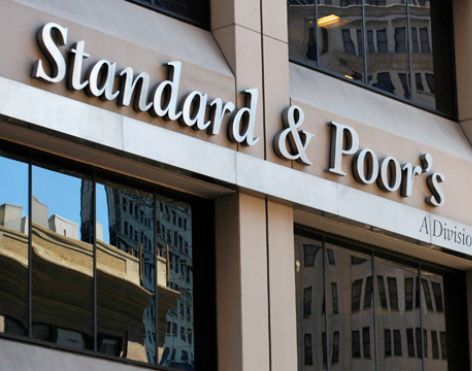S&P AFFIRMED ITS RATINGS ON BULGARIA AT \'BBB/A-2\'; OUTLOOK STABLE

13.12.2012
Standard & Poor's Rating Services affirmed the sovereign credit ratings on Bulgaria at 'BBB/A-2' with stable outlook. "The Bulgarian government's policies will continue to support the sovereign's macrofinancial stability, including consolidation of its finances, despite subdued economic growth environment" the Agency points out. The estimate of the analysts is that "the ratings reflect the government's strong track record of fiscal prudence; low and declining deficit and debt stock". S&P further noteso the country's strong medium-term growth prospects, particularly if they are backed by increased private investment; and improving absorption of EU funds. A challenge for Bulgaria remains the relatively low GDP per capita.
The Agency expects real GDP growth of about 1.7% in 2013 and an average of 2.0% from 2013-2015, the main driver of this growth being a recovery in both domestic and external demand. "The government's recent announcement about reducing gas prices for households and corporates could benefit next year's current account balance and the GDP growth outlook", emphasizes the Agency. The forecast of the institution is that the general government deficit will reach 1.3% in 2012 and stay broadly the same in 2013, though it takes account of the risk of fiscal slippage because of the forthcoming parliamentary elections.
According to the analysts the banking system is well-capitalized, with a capital adequacy ratio of 16.7% at end-June 2012 and the robust growth in domestic deposits of businesses and households over the past three years has helped banks to pay down their external debt.
"Though the government has stated that it is postponing plans to join the European Exchange Rate Mechanism (ERM II), the precursor to entry into the European Economic and Monetary Union (eurozone), we do not expect this to lead to a change in its commitment to sound economic policy", state the analysts of the Agency.
"If external conditions for the financial system ease further and exports, combined with capacity-enhancing investment, lead economic growth toward a more balanced structure, while further reducing the external financing requirements, we could consider raising the ratings", the Agency points out.